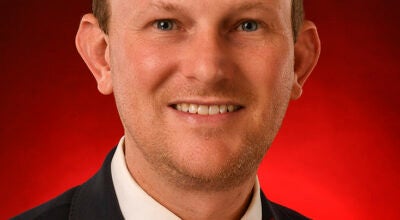Benghazi game lost before it began
Published 11:48 pm Wednesday, October 28, 2015
Here’s some free advice for congressional Republicans. If you don’t want to make it seem like you’re focusing on Hillary Clinton, it’s a bad idea to put her in front of television cameras for 11 hours. The Benghazi hearing was a failure as both a show trial and as an example of representative democracy, succeeding only as a showcase for a woman of epic patience if nothing else.
Pity poor Trey Gowdy. The game was lost before it began thanks to the careless admissions by his two colleagues and a major in the Air Force Reserves that the Benghazi investigation was more focused on punishing Clinton than preventing terrorist attacks. Most Americans agree that partisan politics is driving the endless investigations into Benghazi. It fell to Gowdy to insist that the Earth was flat in his opening remarks.
“Madam Secretary, I understand some people have suggested this investigation is about you,” he said. “I assure you it is not.”
It went downhill from there for the next 11 hours. He might as well have said, “Hold my beer. Watch this, y’all.” For the next 11 hours, we learned why Barack Obama asked Clinton to be our top diplomat and why Congress is polling worse than gonorrhea, traffic jams and cockroaches.
For 11 hours, Clinton had the grace not to tell the yelping backbenchers to go to the beach and pound sand. For 11 hours, she laughed off insinuations of treason and calmly set the facts in order when bellyaching congressmen and women knocked them aside.
I can’t endure the minor inconveniences of modern life without at least an outward demonstration of my irritation. It should not shock us that Clinton could remain composed in the face of rank amateurs turning a terrorist attack into political fodder, but we should be awed that anyone could do this for 11 hours.
All the “Lord of the Rings” movies don’t last 11 hours. They just seem like they do.
The longest boxing match ever was only seven hours long, and they called that a draw because both fighters were too exhausted to continue.
You could have fit the longest baseball game in major-league history in the middle of the Benghazi hearing and had three hours left over. (Coincidentally, the Republicans lost that game, too.)
You could have taken off from Reagan National Airport when Gowdy gaveled the hearing into session, landed in Paris, enjoyed a leisurely dinner, and caught the end of the hearing in your hotel room.
How long is 11 hours? This year two men stowed away in the wheel well of an airliner from South Africa to London. One of them died. That flight was 11 hours long.
If Gowdy had paid for the same amount of time with the most expensive prostitute in New York, it would have cost $22,000. Though expensive, this would have cost a lot less than the $4.5 million of our money that Congress has spent going after Clinton, and at this point I don’t think they’re ever going to get her.
The Benghazi hearing lasted longer than the Battle of Bunker Hill and at similar cost both in treasure and in political capital. Republicans attacked on Benghazi, on emails, and on and on since the night of the attacks in Benghazi on Sep. 11, 2012. When GOP Reps. Kevin McCarthy and Richard Hanna showed the whites of their eyes by admitting what we could all plainly see, Democrats returned fire. Republicans dragged Hillary before a hearing but at great cost.
When the hearing started, 72 percent of Americans believed politics was behind this, the eighth congressional investigation in Benghazi. After essentially rehashing debunked conspiracy theories for longer than it takes to drive across Texas the long way, that majority has surely grown.
Unfortunately, congressional Republicans are showing no sign of abandoning this losing strategy. As Clinton said, you can’t represent American interests abroad from a bunker, but neither can you represent Americans at home with a bunker mentality. Politicizing an attack on Americans is shameful, and if last week’s hearing is any indication, a losing political strategy.
Jason Stanford is a regular contributor to the Austin American-Statesman, a Democratic consultant and a Truman National Security Project partner.


